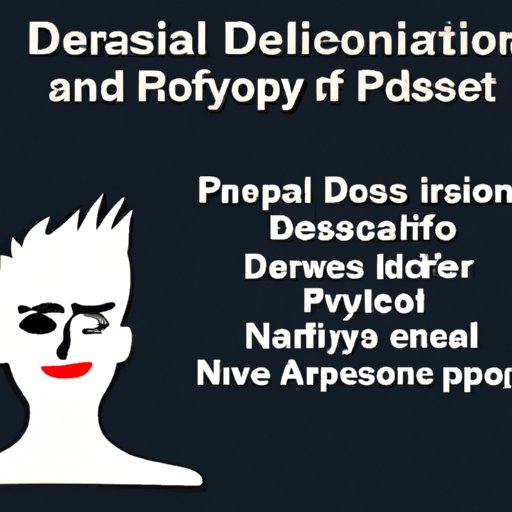I. Introduction
Narcissistic Personality Disorder (NPD) is a mental health condition that affects a small percentage of the population. It is characterized by a need for admiration, grandiosity, and lack of empathy. The purpose of this article is to explore the link between childhood trauma and NPD.
II. What is Childhood Trauma?
Childhood trauma refers to experiences that occur in a person’s early years that can leave lasting psychological and emotional effects. Examples of childhood trauma include emotional neglect, physical abuse, sexual abuse, and more. These experiences can cause severe and lasting psychological damage and increase the risk of developing mental health issues later in life.
III. What is NPD?
Narcissistic Personality Disorder is a mental health disorder in which an individual has an inflated sense of self-importance, an excessive need for admiration, and a lack of empathy for others. Those with NPD feel entitled to special treatment and often manipulate or exploit others to achieve their goals. They are highly sensitive to criticism and become defensive and aggressive when they feel threatened.
IV. The Relationship Between Childhood Trauma and NPD
Research studies have found a link between childhood trauma and the development of NPD. Childhood trauma can cause a child to develop negative beliefs about themselves, which can lead to the development of grandiosity and the need for admiration characteristic of NPD.
Those who have experienced childhood trauma may also develop coping mechanisms such as denial, which can contribute to their lack of empathy for others. Additionally, being exposed to unhealthy family dynamics can lead to a distorted view of relationships, causing a person to struggle with maintaining healthy relationships.
V. Types of Childhood Trauma that Increase the Risk of Developing NPD
Emotional abuse, physical abuse, sexual abuse, and emotional neglect are all types of childhood trauma that can increase the risk of developing NPD. Emotional abuse, including verbal abuse and belittling, can cause a child to develop negative beliefs about themselves that can lead to the development of NPD.
Physical abuse and sexual abuse can cause feelings of powerlessness and a loss of control, leading to a need for control and domination later in life. Meanwhile, emotional neglect can cause an individual to struggle with developing healthy emotional connections, leading to a lack of empathy.
VI. The Mechanism Behind Childhood Trauma and NPD
NPD sufferers’ learned behaviors and coping mechanisms are often formed during childhood trauma. These behaviors and coping mechanisms can be seen as dysfunctional attempts to protect oneself from emotional pain and can cause the individual to become highly defensive and self-protective.
Additionally, children exposed to unhealthy family dynamics may adopt unhealthy coping mechanisms, such as manipulation and lying, which can become ingrained and manifest later in life as traits of NPD.
VII. Stories and Quotes from people with NPD about their Childhood
Many people with NPD may not realize that their personality traits are linked to their early experiences. One individual with NPD reported that their mother had high expectations of them and was critical, causing them to feel inadequate. This sense of inadequacy caused them to develop a need for admiration and a sense of entitlement.
Another individual reported experiencing childhood sexual abuse. As a result, they struggled with a fear of powerlessness and a need for control. This caused them to become highly defensive and often manipulative as an adult.
VIII. Conclusion
In conclusion, childhood trauma can have a significant impact on the development of NPD. Emotional abuse, physical abuse, sexual abuse, and emotional neglect can all contribute to the formation of negative beliefs about oneself and the development of dysfunctional coping mechanisms.
Solutions for those suffering from NPD due to their childhood trauma may include seeking therapy to work through past traumas, developing healthy coping mechanisms, and learning how to develop empathy and healthy relationship skills.
(Note: Is this article not meeting your expectations? Do you have knowledge or insights to share? Unlock new opportunities and expand your reach by joining our authors team. Click Registration to join us and share your expertise with our readers.)
